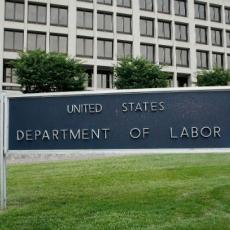In March 2016 the U.S. Department of Labor (“DOL”) issued the final version of its “persuader rule.” This rule requires employers, attorneys and labor consultants to report to the DOL any arrangement with one another to persuade employees, directly or indirectly, concerning their rights to organize and bargain collectively.
Under the persuader rule, as it has been interpreted since the Kennedy administration, an employer’s relationship with a consultant, including an attorney, was not subject to the disclosure rule provided that the consultant had no direct contact with employees. The use of attorneys and consultants for activities limited to providing the employer and its supervisors with advice or materials for use in persuading employees was exempted from the reporting requirement.
Under the 2016 interpretation of the persuader rule, indirect persuader activities are subject to the reporting requirement. Specifically, the new rule requires employers and consultants without direct contact with employees, but with the object to persuade, to disclose and report if they:
* · Plan, direct, or coordinate activities undertaken by supervisors or other employer representatives;
**– Provide material or communications to the employer, in oral, written, or electronic form, for dissemination or distribution to employees;
· Conduct a seminar for supervisors or other employer representatives; or
· Develop or implement personnel policies, practices, or actions for the employer.
(81 Fed. Reg. 15,938.)
The new rule is particularly problematic in that it invades the attorney-client privilege. It discloses the identities of consultants, fees paid, and strategies. Once filed, the reports are available to the public and can be very damaging to an employer.
Both the employer and the attorney (or other consultant) must report activities subject to the persuader rule. Employers and their lawyers will argue that the advice given was not for the purpose of persuading employees concerning their rights to organize and bargain collectively. However, this does not prevent the DOL or a union from claiming acts of lawyers was for the specific purpose of persuading employees.
An exception to the new rule applies to open-ended agreements and understandings made before July 1, 2016. Therefore, if you wish to minimize your company’s risks with respect to disclosure requirements, we recommend that you enter into open-ended agreements with attorneys and consultants who may provide advice to you from time to time. You do not need to be under the threat of union organizing, or subject to a collective bargaining agreement to take advantage of an open-ended agreement exemption. However, the agreement must be entered into prior to July 1, 2016.
Please contact me if you wish to enter into such an agreement with Fishman, Larsen & Callister.
Several challenges to the new rule have been filed. Just yesterday, a federal court in the Northern District of Texas issued a temporary injunction preventing the Obama Administration from implementing the rule. However, this is just an interim solution. In the event the rule passes judicial scrutiny, it is important to have your agreements in place to avoid risk of expansive disclosure and reporting.
Read the DOL’s position on the new persuader rule here: https://www.dol.gov/olms/regs/compliance/ecr_finalrule.htm
Read the court’s preliminary injunction here: http://www.wlf.org/upload/litigation/misc/PreliminaryInjunction-NFIBv.Perez_61167799_1-c.PDF

